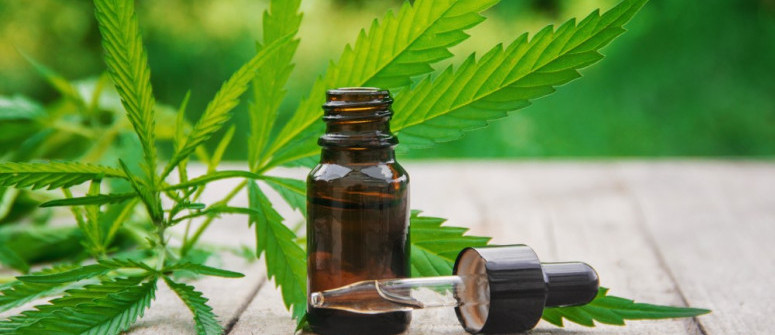Can cbd oil be addictive?

With how popular cannabis has become in the past few years, people have started to better understand the habit-forming potential of THC. Some still wonder, though: Can CBD become addictive? In this article, we'll talk you through the science of addiction to help answer that question.
With CBD ever more popular, there is a burning question often asked: is CBD addictive? Even after all these years, there are still questions about the "addictive" nature of cannabis products. We know, for instance, that you can become psychologically dependent on THC with heavy use. There is no significant physical dependence formed, rather, it's called cannabis dependence disorder. This doesn't affect that many people (only 1 in 10 users form dependency at all), but it's significant enough for some to wonder whether it applies to CBD as well. CBD doesn't get you high, but is there something about it that gets you hooked?
HOW ADDICTION WORKS
Let's talk through the basics. Addiction refers to when a substance or activity has taken full control of your life to an unhealthy degree. Your daily routine is structured around it. It becomes the one thing you spend money on. Your behaviour and interactions all involve it. Even when people leave, even when you get hurt, you stick with it. Fully affecting your mind and your body, you have great trouble stopping even when you want to.
It's not just hard drugs or alcohol; people can get psychologically addicted to anything. Know someone who's a bit too into their work? Dedicates their lives to shopping? Can't seem to get off the internet? They all fall into that category. Self-control gets thrown out the window, and being deprived of it can make you seriously uncomfortable. You get irritated, can't sleep, can't eat, and the thought of your habit is at the centre of your mind.
Note we've been talking about psychological addiction, though. Physical addiction, the type people using alcohol, cigarettes, or hard drugs experience, is a whole other issue that only comes with certain substances. With these substances, being deprived can make the user not just uncomfortable, but physically ill. In severe cases, full withdrawal without medical surveillance can even lead to death.
It's also worth mentioning that psychological addiction often comes packaged with physical dependence. Thankfully, the dependence people form with cannabis, while a real issue, does not extend much beyond the psychological realm.
IS CBD ADDICTIVE?
Now, with our clear understanding of what addiction is, we can confidently answer the question: Is CBD addictive? Well, if you ask the World Health Organisation (WHO), there's a simple answer. Based on all the available studies, there's no evidence that CBD has the potential to be abused or become habit-forming. Going into specifics, WHO cites a set of randomised, double-blind studies where humans were shown to not experience any significant physiological, psychoactive, or other abuse-encouraging effects.
Speaking on actual addiction, however, there aren't any human studies available on physical or psychological CBD dependence. Although, given CBD's low abuse potential, offering no high or overt sensation, it's extremely unlikely that addiction is possible. There aren't even tabloid horror stories about people getting hooked on CBD! That is how you know there isn't a problem.
CAN YOU BUILD A TOLERANCE TO CBD?
Now that you can rest easy, you're likely still wondering whether you can form a tolerance to CBD. If you take CBD oil regularly, are you eventually going to need a full bottle a day? That cost would stack up fast and make CBD inaccessible to a lot of people. Thankfully, this doesn't seem to be an issue either. As WHO found in their review on a study in which mice were given CBD and THC, subjects didn't form any tolerance to the former, but they did build one up against the latter. This doesn't confirm anything about humans, but it strongly suggests that building a tolerance isn't an issue with cannabidiol.
DOES CBD HAVE ANY SIDE EFFECTS?
Lastly, as with any substance, you might also be wondering about the side effects. Thankfully, CBD by itself has not been shown to produce significant side effects, regardless of dose. There is, however, some evidence that CBD can conflict with other drugs, with blood thinners being a prominent example. Specifically, researchers found that CBD impaired the function of the cytochrome P450 enzyme, which is responsible for breaking down all sorts of prescription drugs in the body.
That study was from 1993, and new research is being done every day. In the meantime, we recommend you always talk to your doctor before using CBD, especially if you're taking other medications.
CBD SHOWS A GOOD SAFETY PROFILE
With all of the evidence at hand, WHO concludes that CBD has a good safety profile. In fact, it rates far better than THC, which says something considering THC isn't even poorly rated. With no visible potential for one to become addicted or to form a tolerance, and with no real likelihood of abusing CBD, it's probably one of the safest substances you can take on a daily basis. As we said, though, always be sure to consult with your practitioner before incorporating CBD into your life.
.jpg)
.jpg)

.jpg)
